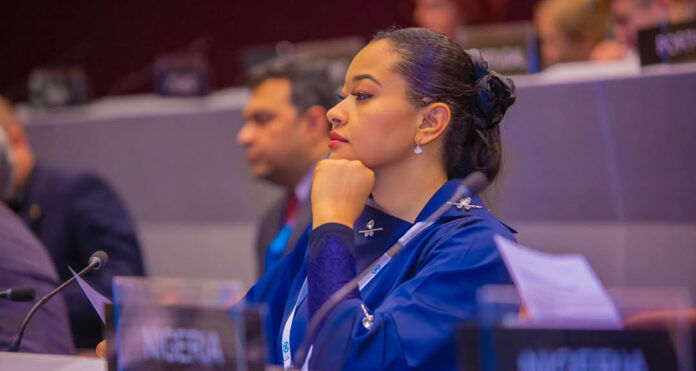The Nigerian Senate has restated its commitment to following due process and its Standing Orders, amid public debate over Senator Natasha Akpoti-Uduaghan’s suspension and attempt to resume her seat.
Speaking at a capacity-building workshop on “Parliamentary Reporting: Issues, Challenges and Responsibilities” organized by the Senate Press Corps on Wednesday, Senate spokesman Yemi Adaramodu said the chamber will not discuss or act on matters pending before the courts.
“Remember Standing Order 40(1) says any matter that is in court shall not be entertained,” Adaramodu reminded journalists. “Our Standing Orders are constitutional—Section 60 of the 1999 Constitution empowers each House to regulate its own procedure. Rules are rules. If you are supposed to sit on seat number 10 and you take seat number 13, you will not be recognised. But oftentimes the public interprets such procedures as if parliament is a banana republic.”
The Senate’s position comes days after Akpoti-Uduaghan was informed she cannot resume despite her six-month suspension having lapsed, pending a Court of Appeal judgment to avoid sub judice.
Adaramodu, a journalist for 22 years, urged correspondents to help bridge gaps in public understanding by explaining the constitutional foundations of legislative procedure. He warned that inaccurate reporting of motions or bills can spark unnecessary public outrage or misrepresent lawmakers’ intentions.
“Parliamentary reporting is not just another beat, it is perhaps the most important. Misreporting diminishes both parliament and the press,” he said, recalling an incident in which a false report suggested a higher institution was allocated to his constituency, leading to local tensions.
The spokesman also cautioned journalists against sensationalism and partisan pressure, reminding them of Section 22 of the Constitution, which entrusts the media with the sacred duty of holding the government accountable.
He revealed that Senate President Godswill Akpabio has approved quarterly retreats between the National Assembly and parliamentary correspondents to deepen journalists’ understanding of legislative processes.
“Democracy thrives only when parliament and the press operate in responsible synergy,” Adaramodu stressed, calling for balanced reporting that reinforces public trust in democratic institutions.

